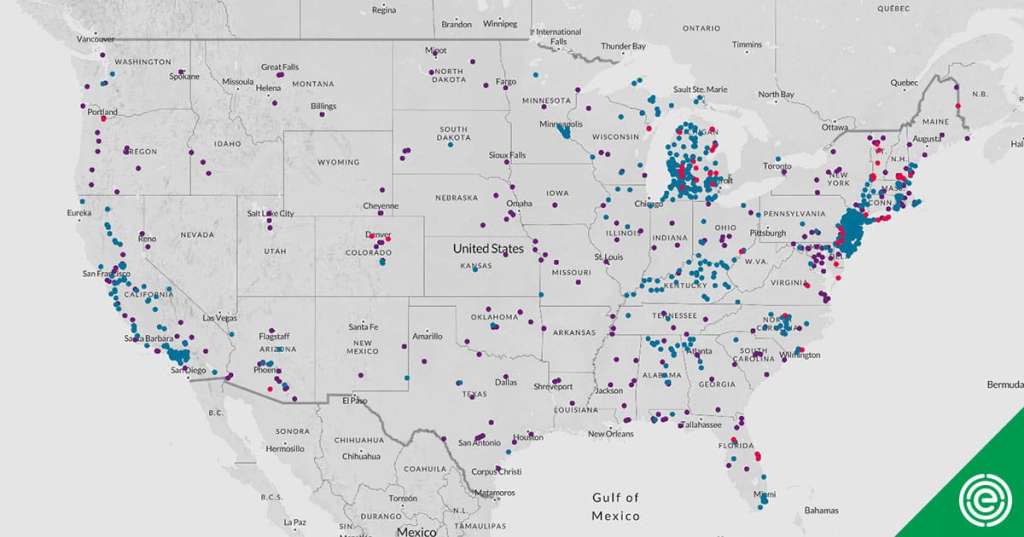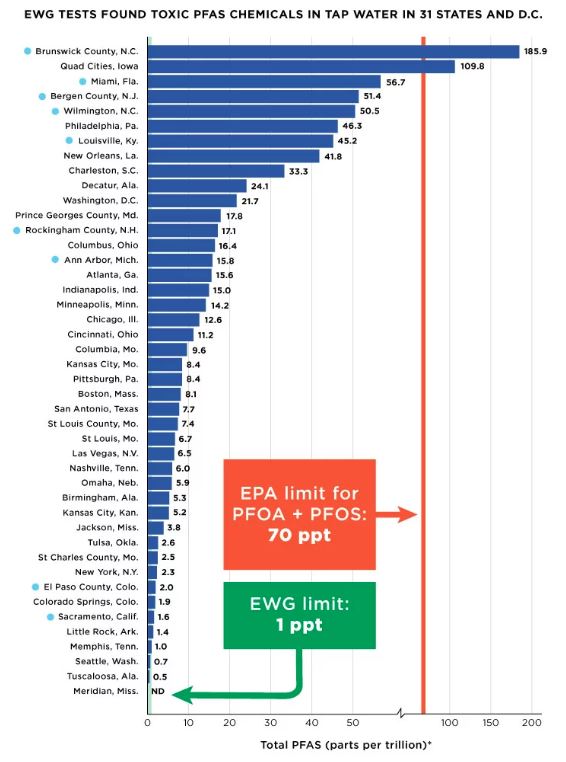BOSTON (WHDH) - More than 40 cities across the United States have toxic “forever chemicals” present in their drinking water, new environmental testing found.
Tests commissioned by the Environmental Working Group found toxic fluorinated chemicals known as PFAS in the drinking water of 43 cities, including major metropolitan areas, the nonprofit organization announced.
“The results confirm that the number of Americans exposed to PFAS from contaminated tap water has been dramatically underestimated by previous studies, both from the Environmental Protection Agency and EWG’s own research,” a report published Wednesday said.
Based on testing and research, EWG says its scientists believe PFAS are “likely detectable” in all major water supplies and “almost certainly” in an all that utilize surface water.
“Of tap water samples from 44 places in 31 states and the District of Columbia, only one location had no detectable PFAS, and only two other locations had PFAS below the level that independent studies show pose risks to human health,” EWG’s report stated.

Contamination has not been publicly reported by the Environmental Protection Agency in 34 places where EWG’s tests found PFAS, the report said.
Utilities that have chosen to independently test for PFAS are not required to make their results public or report them to state drinking water agencies or the EPA.
In the places that EWG tested for PFAS, the total level varied from less than 1 part per trillion, or ppt, to almost 186 ppt. In Boston, testing showed PFAS at a level of 8.1 ppt. PFAS in Rockingham County, New Hampshire, came in at 17.1 ppt.

The most notorious PFAS compounds are PFOA, formerly used by DuPont to make Teflon, and PFOS, formerly an ingredient in 3M’s Scotchgard. PFOA was detected in 30 of 44 samples, and PFOS in 34 samples, according to EWG.
EWG says its mapped PFAS contamination of drinking water or groundwater in almost 1,400 sites in 49 states.
PFAS are known as forever chemicals because once released into the environment, they do not break down, and they build up in blood and organs.
Exposure to PFAS increases the risk of cancer, harms the development of the fetus, and reduces the effectiveness of vaccines.
(Copyright (c) 2024 Sunbeam Television. All Rights Reserved. This material may not be published, broadcast, rewritten, or redistributed.)

